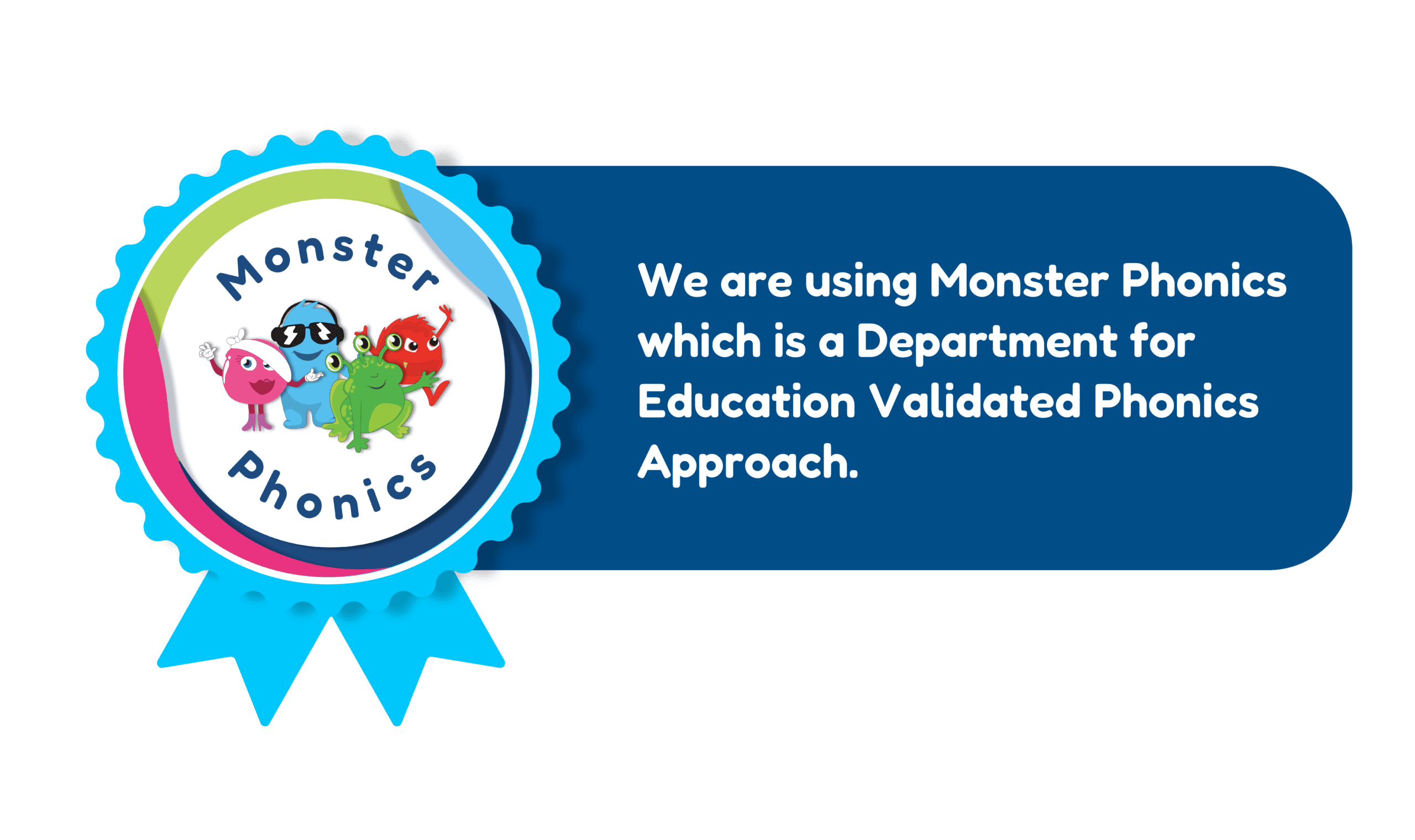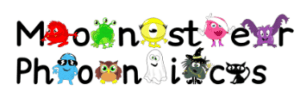Phonics is taught every day and children learn to apply their phonics skills in reading practise sessions. This helps our children develop their fluency and comprehension skills. Monster phonics draws on the latest research into how children learn best; how to ensure learning stays in children’s long term memory and how best to enable children to apply their learning to become highly competent readers.
Different to any other scheme, Monster Phonics uses colour to consistently code for key graphemes in English. Colour shows children how to pronounce the most difficult aspects of reading. It is unique in that it uses character (monster) phoneme cues and colour coding to represent the long vowel sounds, silent letters and tricky letters. With Monster Phonics, spellings are more memorable and learning to read and spell becomes exciting and fun!
The innovative colour-coding system aims to accelerate learning to read and spell. It is the only scheme that uses colour coding for sound and audio-visual cues (monsters) to bring phonics teaching to life. Monster Phonics best supports children with dyslexia because it is by far the most multisensory scheme available.
Visual learners benefit from the visual memory of colour in words. EAL learners have pronunciation support for every word that they learn. Monster Phonics highlights the existence of the open syllable spelling of long vowels A, E, I, O and U, such as in be, no, apron, open, me which many young learners misspell.
Throughout the phonics programme, progress is tracked and monitored closely to identify children who require ‘keep up’ sessions. These short sessions will be specific to individual needs and will take place throughout the school day.
Children in Key Stage 2 will continue to receive ‘catch up’ sessions until they have a secure knowledge of phonic phases 1-5.


